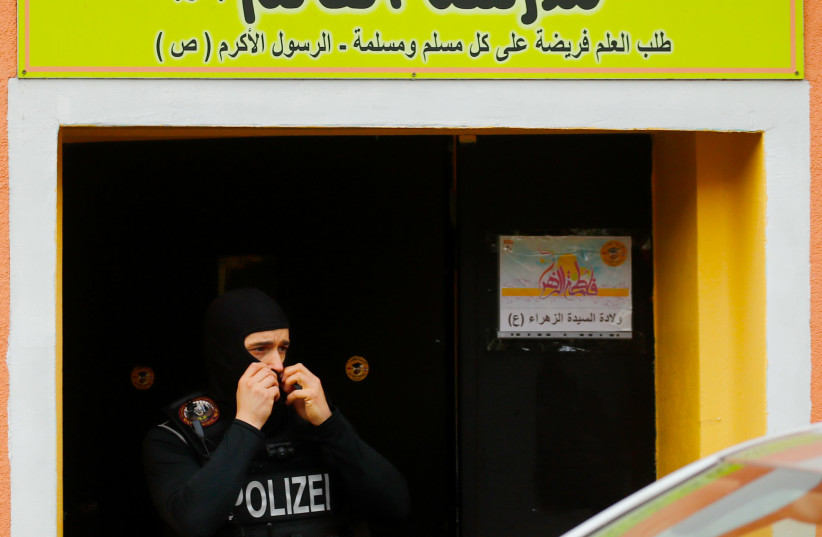Pro-Hezbollah Lebanese news outlet Al-Akhbar reported on Saturday that a senior German intelligence official met with the second most powerful leader of Hezbollah, Sheikh Naim Qassem, with a view toward stopping attacks from the Iran-backed Shi'ite movement against Israel.
The Washington, D.C.-based Middle East Media Research Institute (MEMRI) located the Al-Akhbar report and translated it into English. The Al-Akhbar report claimed that "the most prominent of these visits was made by the Deputy Director of German Foreign Intelligence, Ole Diehl, who came to Beirut about two weeks ago and stayed for one night to meet with the Deputy Secretary-General of Hezbollah, Sheikh Naim Qassem."
According to Al-Akhbar, the report said Diyal was accompanied by "the director of the German Intelligence Station in Beirut."

A spokesperson for the foreign intelligence service of the Federal Republic of Germany (Bundesnachrichtendienst) told The Jerusalem Post, “We have, of course, taken note of the report you have mentioned in your email. As a matter of principle, the Federal Government never publicly comments on matters that concern potential intelligence information or activities, including alleged missions by the Bundesnachrichtendienst leadership. This does not amount to a statement on the accuracy of the facts. The Bundesnachrichtendienst reports to the Federal Government and the competent secret committees of the German parliament on relevant topics.”
The Post also questioned the foreign intelligence service if the meeting was a violation of Germany’s law banning Hezbollah activities.
Edy Cohen, who was born in Lebanon and is a leading Israeli expert on Hezbollah, told the Post, “The Germans give legitimacy to Hezbollah when they meet them. This is a terrorist organization. They should not meet. They have to ban it.”
Cohen, a fluent Arabic speaker, added, “The Germans are not so pro-Israel. They have good ties with Iran that kills homosexuals.” The Iranian regime-backed Hezbollah is a key ally of Hamas in its war against the Jewish state.
According to the Al-Akhbar report, Germany has "always maintained back [communication] lines with Hezbollah, based on a previous relationship during which Germany succeeded in completing a prisoner exchange deal in 2004 between the resistance and the enemy [i.e., Israel]. But things changed when Germany
followed a policy of complete alignment with Israel against Syria, Lebanon, and Palestine, and risked its political and economic status in the eastern Mediterranean."
Germany outlawed all Hezbollah activities within its territory in 2020 following heavy pressure from then-US ambassador to Germany, Richard Grenell, and Israel’s government. One of Grenell’s main objectives was to secure the ban on Hezbollah in Germany.
MEMRI wrote in its analysis of the Al-Akhbar article that “The report explained that Qassem did not provide further details on Hezbollah’s vision for the future, or
any conditions it would accept concerning the situation in Gaza to order Hezbollah forces to stop their military operations.”
According to Germany’s most recent 2023 domestic intelligence report, there are at least 1,250 active Hezbollah operatives in Germany who are in a position to raise funds for Hezbollah and recruit new members.
Post queries to Israel’s ambassador to Germany, Ron Prosor, and the foreign ministry spokesman, Lior Haiat, were not immediately returned.
